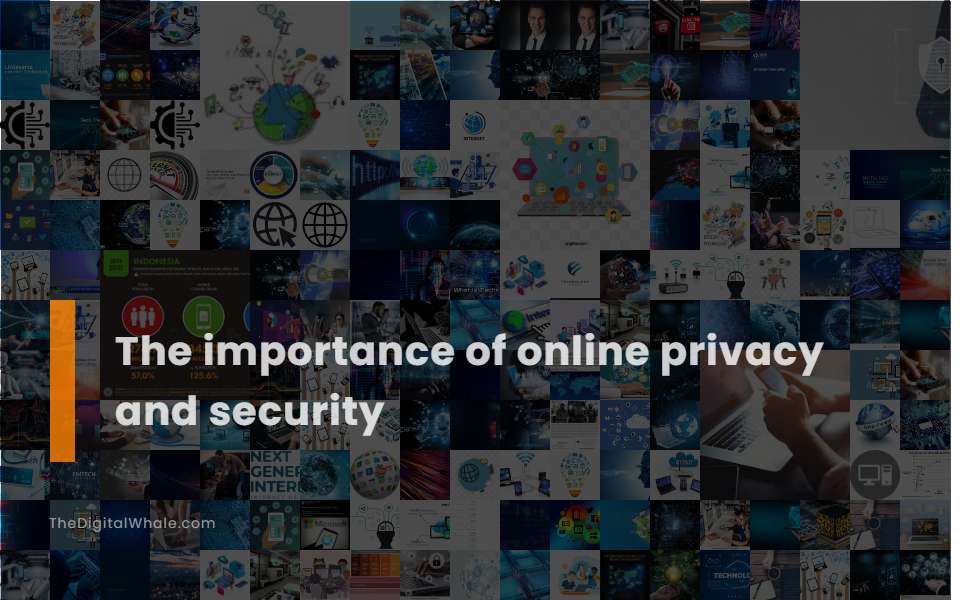The Importance of Online Privacy and Security
What are some reasons that security and privacy matter in a digital world? What is online privacy and security? Let's find out more about The Importance of Online Privacy and Security.

Protection of Personal Data
Online privacy is crucial for protecting personal data from unauthorized access, misuse, and exploitation, involving measures such as using HTTPS, encryption, two-factor authentication, and being cautious with data shared on social media and online forms to prevent cyber threats and maintain control over personal information. For more detailed insights on safeguarding your data, you can explore this article on Thomson Reuters, which provides comprehensive information on securing your personal information online.
Prevention of Identity Theft
Preventing identity theft is essential in today's digital age, and there are several strategies to employ for safeguarding your personal information. Start by keeping sensitive documents secure, limiting what you carry, and being cautious when sharing details online or over the phone. Itâs equally important to regularly monitor your credit reports and bank statements. To further prevent identity theft, consider freezing your credit and using strong passwords accompanied by two-factor authentication. Protecting your Social Security number and staying alert to phishing scams are also vital steps. Utilizing identity theft protection services can provide an additional layer of security by constantly monitoring and protecting your personal data. Additionally, using strong, up-to-date security software, spotting potential spam and scams, and opting for VPNs particularly when using public WiFi are crucial for maintaining your online safety.
Safeguarding Financial Information
Protecting your financial information in the digital age is essential to avert identity theft, fraud, and financial loss. This involves adopting several strategies such as creating strong, unique passwords, enabling two-factor authentication, and maintaining vigilance over your financial activities. Utilizing secure connections and being cautious about phishing scams are vital measures. Additionally, safeguarding usernames, passwords, and PINs, alongside securing your computer with reliable security software and firewalls, plays a significant role in keeping your data safe. Regularly monitoring your financial accounts, reviewing bank and credit card statements, and conducting annual credit report checks can help you detect any unauthorized activities, ensuring your financial well-being.
Maintaining Online Anonymity
Maintaining online anonymity involves utilizing tools such as VPNs to effectively hide your IP address and browsing history. Employ secure operating systems like Linux, use encrypted messaging and storage services, and avoid the sharing of personally identifiable information to protect your identity and data from tracking and surveillance. To further stay anonymous online, it is important to use secure and private browsers alongside VPNs, engage in encrypted communications, and create strong unique passwords. Opt for privacy-focused search engines like DuckDuckGo, manage social media privacy settings diligently, and avoid oversharing to minimize the collection and misuse of personal data. For more detailed insights, explore the comprehensive guide on maintaining online anonymity.
Securing Sensitive Communications
Securing sensitive communications is crucial to prevent unauthorized access, ensure data integrity and confidentiality, and protect against cyber threats by employing strategies such as physical security, encryption, multi-factor authentication, and secure transmission protocols. In the digital age, secure communication relies on four key principles: encryption to protect data confidentiality, authentication to verify user identities, integrity to ensure data is not altered, and non-repudiation to prevent denial of message origin. These principles are essential for safeguarding sensitive information in digital interactions, as highlighted in the insights provided by Kumospace.
Related:
What are some pros and cons of Snapchat for kids? What are the pros and cons of Snapchat? Let's find out more about The Pros and Cons of Using Snapchat.
Avoiding Phishing and Scams
The importance of online privacy and security is highlighted by the need to avoid phishing and scams, which can be achieved by using security software, enabling Multi-Factor Authentication, being cautious with email attachments and links, and backing up data to protect against identity theft and financial fraud. To learn more about safeguarding yourself from these threats, visit the Federal Trade Commission's guide on Phishing Scams. By staying informed and taking proactive measures, individuals can significantly reduce their risk of falling victim to cyber threats.
Ensuring Data Integrity
Ensuring Data Integrity is crucial as it maintains the accuracy, completeness, and consistency of data throughout its life cycle, making it trustworthy and reliable for business decisions and protecting against errors, unauthorized access, and data breaches. For more detailed insights, visit the Splunk Blog where you can learn about safeguarding your data effectively.
Compliance with Privacy Laws
Compliance with privacy laws is crucial as it involves adhering to a patchwork of federal and state laws, such as the Federal Trade Commission Act (FTC), to regulate unfair or deceptive commercial practices and protect personal information from unauthorized access and misuse.
Building Trust in Online Services
Online privacy is crucial for building trust in digital services as it ensures the protection of personal data, secures financial information, and maintains the confidentiality of communications, thereby fostering a secure and trustworthy digital environment. Additionally, Data Privacy plays a vital role in building trust by promoting transparent communication, adhering to privacy regulations, implementing strong data protection measures, empowering customers with control over their data, and ensuring clear and understandable privacy policies.
Mitigating Cyber Threats
Online privacy is crucial for mitigating cyber threats as it involves protecting personal data from misuse, preventing unauthorized surveillance, and securing sensitive communications, all of which are essential for safeguarding against identity theft, financial fraud, and other malicious activities. By implementing strong cybersecurity measures, such as using VPNs, strong passwords, and two-factor authentication, individuals and organizations can protect against [cybersecurity](https://www.simplilearn.com/tutorials/cyber-security-tutorial/what-is-cyber-security) threats like phishing schemes, ransomware attacks, and data breaches. These measures are vital for preventing personal information from being exposed and disrupting business processes.
Related:
Might cyberbullyingTAKE Place Online if Kids Can't Stop Lip syncing? What are some signs that a teenager is using the internet too much? Let's find out more about Should Parents Monitor Their Teenager's Internet Usage?.
